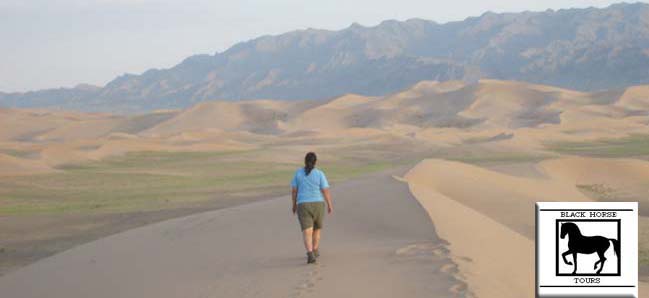Cultural Tips for Travelers to Mongolia
The people of Mongolia have preserved their ancient friendly and hospitable character up to the present day, so tourists do not meet with many difficulties while travelling in this country. In the big cities, you will be able to find a tour guide or an interpreter and to get help when you need it. The most important thing to pay attention to is that you respect the culture and the customs of the people and that you familiarize yourselves with their "dos and don'ts", since you are coming to a less well-known society. Mongolia is a place of varied landscapes, combining mountains, desert, and steppe. The people, therefore, following the peculiarities of their environment, have developed many different traditions, customs, and beliefs, too.
M E E T I N G P E O P L E
Among the inhabitants of Ulaanbaatar and the other big cities, you will find the ways of thinking and the manners that young people in western countries are used to. Once out in the countryside, however, you will realize that everything is completely different. Mongolians usually shake hands with someone they meet for the first time to show their respect for the new acquaintance. Sometimes people will stretch out their hand, too, when they have trodden on your toes by accident. You should then shake hand, which is a way of showing your respect for the person. If someone treads on your toes or bumps into you accidentally, that person will certainly stretch out his or her hand to beg your pardon. This means, "No hard feelings!" If you do not respond to this apology, the other one will worry that you still bear a grudge against him or her. When Mongolian men meet you on the road in the countryside, they will take out their snuff bottles and offer them to you. This is to honor you by treating you with snuff. The snuff in these round bottles made of precious stones and nicely fitting into the palm of a hand does not contain nicotine, so you should take some or at least sniff at the bottle's neck before giving it back. If you fail to do this, you will insult the man. Mongolians, like many other people of the east, regard the head and shoulders as the pure parts of the body, so you should try not to touch anyone there. If you enter a yurt, you should by no means step on it’s threshold. Mongolians strictly forbid this to their children, too. And you should not straightaway move to the back part of a yurt or sit in the seat of honor. This is a special place where Mongolians put their Buddha shrines, and where only the head of the household sits. Outsiders usually are not allowed there. If the owner of the yurt invites you to the seat of honor, this is a token of high esteem.The arrival of guests is a very special occasion for Mongolians. They will take out their most delicious food and drink and treat you with everything they have, until the last bite and drop is used up. Of course, it is not easy to digest such quantities, but try at least to taste every dish.





